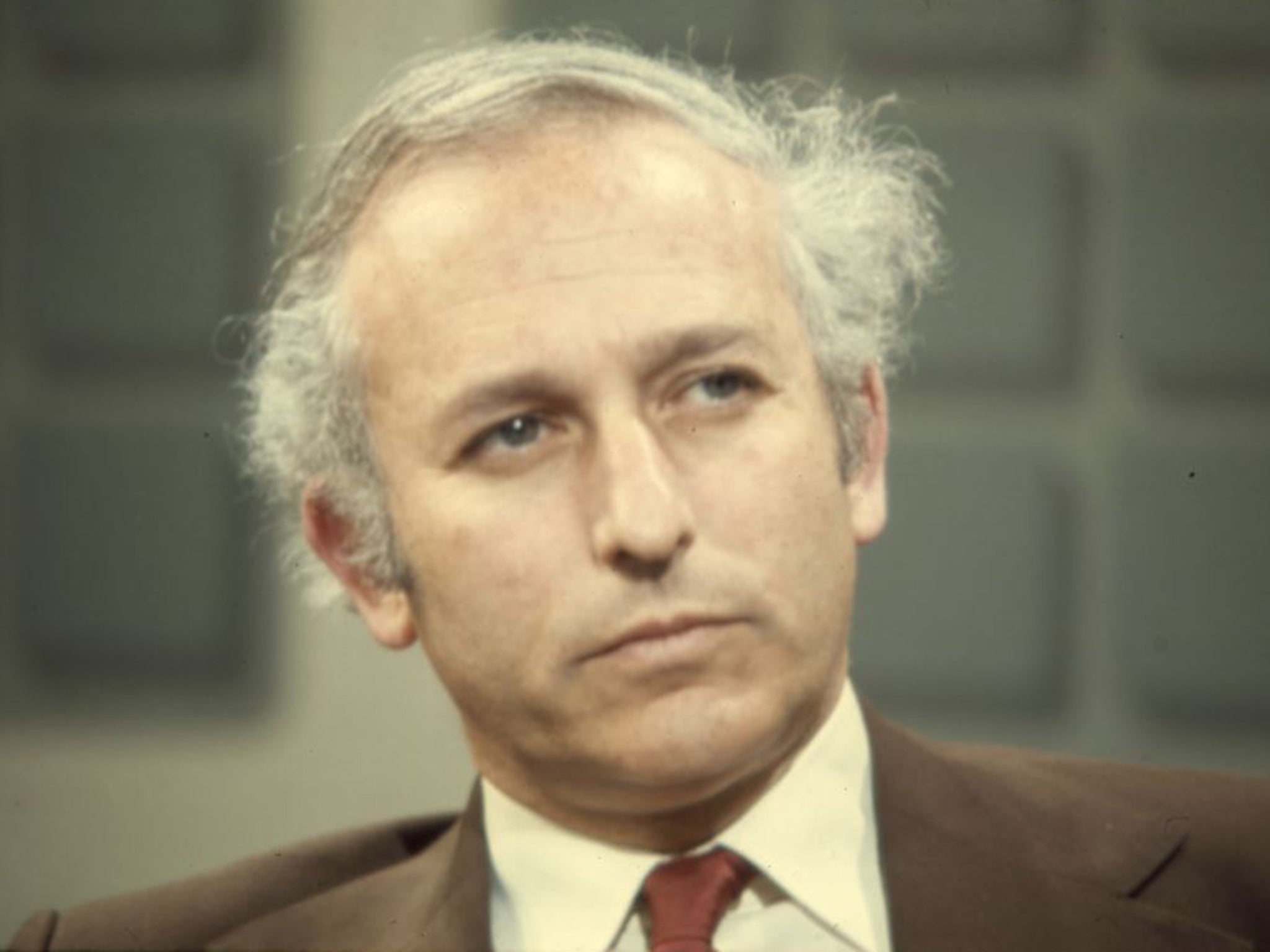Lord Janner: Justice has to be seen to be done – even in the case of the Labour peer
A court should have decided if he was fit to stand trial on charges of child abuse


What is the difference between justice and the law? And what is the point of a criminal trial? The Director of Public Prosecutions, Alison Saunders, was not troubled with such questions when she appeared on Newsnight three days ago to defend her controversial decision not to press child sex abuse charges against the former Labour MP Lord Janner. But she ought to have been.
It was “not in the public interest” to prosecute because the 86-year-old Janner was suffering from advanced dementia, Britain’s most senior prosecutor argued. Dementia itself was not a bar to a trial, she acknowledged, but there had to be a “need to have a trial for the public protection” and “in this case there was no ongoing risk” to the public. This is a very narrow view of the law, and a constricted view of both the protection of the public and of the fundamentals of justice.
It is ironic that in the week that Lord Janner has not gone on trial, four elderly Germans have. Three guards from Auschwitz and one from Bergen-Belsen – all aged 93 or 94 – have been called to account for their involvement in Nazi death camps even though none of them was directly involved in the killing. They are, at their age, presumably no danger to the public. But their prosecution – 70 years after the crimes – is seen as in the public interest for the wider message it sends.
What adds to the irony is that Janner, a former chairman of the Holocaust Educational Trust, is on record in his pre-dementia days as criticising the Old Bailey when it allowed an 86-year-old man, Szymon Serafinowicz, to escape questioning over Nazi atrocities on the grounds that he had dementia. “I don’t care what bloody age they are,” Janner said. “These criminals should have been dealt with years ago.”
Members of Lord Janner’s family insist that he is “entirely innocent of any wrongdoing”. It is hard to know how they can assert this, since the alleged offences took place in their absence. The most they can plausibly insist is that Janner told them this, before he had dementia, and that they believed him. But there is more to justice than guilt or innocence.
For justice to be done it famously must be seen to be done. That is demonstrably not the case here. Janner has been found guilty by many, and without the right to defend himself in court. Conversely those who claim to be victims of sexual abuse have been denied the right to tell their stories in public. That sadly compounds the sense which is common among sex abuse survivors that society’s unwillingness to listen can be more psychologically damaging than the original abuse. There has been much talk of an Establishment cover-up but the truth is that sex abuse is a reality which our entire society refused to think possible until comparatively recently.
A former president of the Law Society, Linda Lee, put her finger on something important when she said that the DPP’s decision had not caused disappointment among the victims so much as distress. The distress of disbelief should have led Saunders to see that the medical evidence on Lord Janner’s dementia should have been subjected to the public scrutiny of the courts rather than the private intuitions of an unelected official.
The problem has been exacerbated by the questions still bubbling up in the affair, and which she has not answered. Why did she seek advice on Janner from Neil Moore, a QC who until recently shared chambers with Janner’s QC son? What advice did he give?
Why did she ignore the advice of two other distinguished legal advisers? Eleanor Laws QC, leading counsel to the Janner investigation, recommended that he be charged because of the weight of corroborating accounts from victims which so horrified police they formulated 16 charges of indecent assault and six charges of buggery against Janner. And Clare Montgomery QC told Mrs Saunders that if Janner were prosecuted an application by his defence for a judicial review to challenge her decision would be unlikely to succeed.
And how bad is Janner’s dementia? Earlier this month the peer had signed a letter to the House of Lords acknowledging that he understood a complex parliamentary procedure which would keep him in the House of Lords despite his current absence. Six other men with dementia have been tried for child sex offences in the past year. A public “trial of the facts” – in which victims could be given a public hearing – can be part of a court case to decide whether someone accused of a crime is fit to plead. The decision not to put this case before the courts but to handle it “in a clandestine and quasi-judicial way behind closed doors”, as one MP put it, seems to undermine the British system of justice and the confidence of the public in it.
One quote from a public prosecutor goes to the heart of the matter. Potential victims of crime need “to know that it doesn’t matter how long ago a crime is alleged to have been committed”. The Crown Prosecution Service would still “take it seriously” and would “take the views of victims, or their families, into account when deciding if we should prosecute.” That prosecutor concluded that “where the most serious offences are being alleged it is nearly always in the public interests to prosecute”. The words were spoken, just last year, by Alison Saunders. One wonders what has changed since then?
Paul Vallely is visiting professor in public ethics at the University of Chester
Join our commenting forum
Join thought-provoking conversations, follow other Independent readers and see their replies
Comments
Bookmark popover
Removed from bookmarks